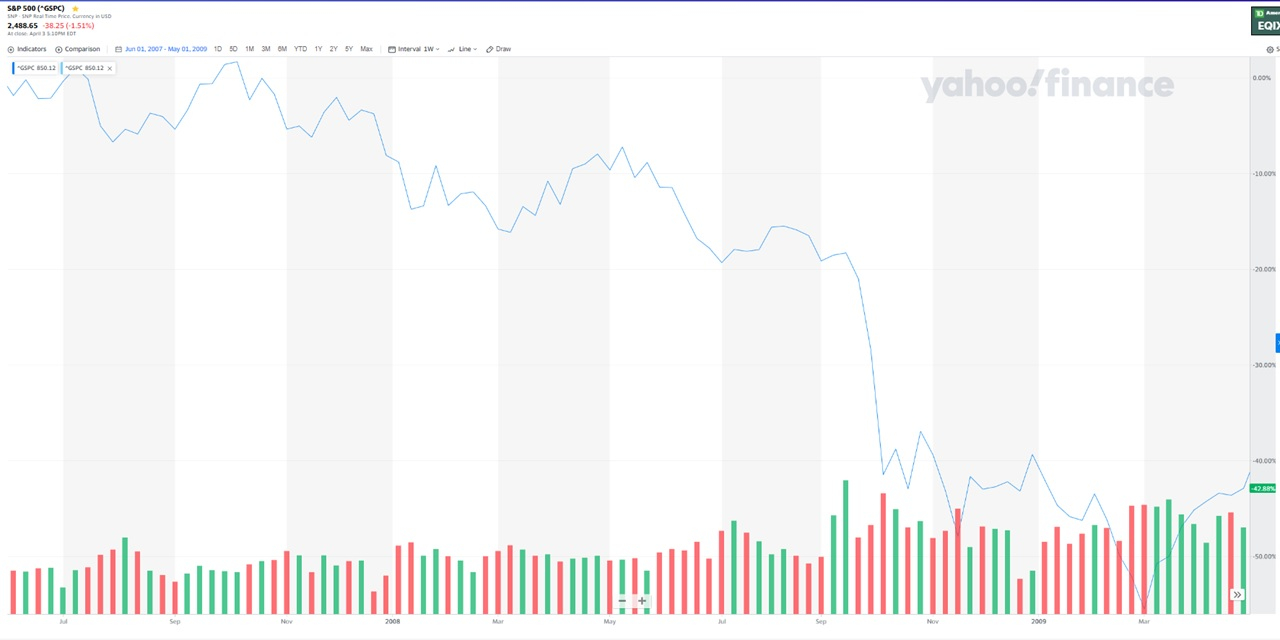Hey, do you remember that awesome rally after Powell’s speech last week...and how the bulls were claiming victory as stocks went soaring above the 200 day moving average?
Yes, that bout of irrational exuberance is over as foretold in my last commentary: Is the Bear Market Over??? (spoiler alert...NO IT AINT OVER!).
The more updated, educated, and elucidated version of that story is shared with you below... Market Commentary
Indeed, it looks like Mike Wilson of Morgan Stanley called it right when he previously predicted stocks would rally to a range of 4,000 to 4,150 on the S&P 500 before the bear market resumes in earnest. Thus, after reaching those temporary heights last week he is now reminding everybody to prepare for bottom somewhere between 3,000 to 3,300 by April 2023.
This outlook is not a surprise to Reitmeister Total Return members as I have been beating the drum about this being a long term bear market where we have not yet seen bottom. And not to be suckered in by any of these seemingly impressive bear market rallies as they are all just mirages.
This explains why I still have a hedged portfolio in place to profit as the serpentine pattern of this market eventually winds lower. Just like the +1.86% gain the past 3 brutal sessions for the overall market. The oddity of recent action is what has become bullish vs. bearish catalysts. I thought it would be useful to summarize that for you folks today to appreciate the events that lead to rallies...and those that get us back in bear market mode.
NOTE OF CAUTION: What I am about to share is the current triggers for price action. However, there is a bizarro world inverse logic being used by bulls that won't last over the long haul. More on that in the next section.
What Are the Bullish Catalysts for Today’s Market?
Anything that points to softening inflation.
This can come in many forms. First, is actual inflation reports like the early November CPI/PPI reports that came in lower than expected. This potential signaling that inflation has peaked was like drinking 5 Red Bulls for traders to bid up prices. Yes, 7.7% inflation is better than the previous 8% rate. But a long, long, long way from the 2% Fed target which is why Powell has been clear that they will stay hawkish for a long, long, long time.
Also in this category of disinflationary news is weak economic reports. This is the bizarro world concept I referred to early. That’s because normally the chain reaction works like this:
Weak economic data > greater likelihood of recession > lower corporate earnings > lower share prices
Yet at this stage, when investors are myopically focused on only inflation, then they see the equation as follows:
Weak economic data > greater likelihood of recession > tamps down inflation > less hawkish Fed involvement > the sooner the Fed will lower rates in the future > the more bullish long term for stocks > let’s buy stocks NOW!
This latter equation may seem logical on the surface, yet completely misses the superior, and more historically accurate aforementioned version of the bearish chain reaction to this news. And thus it explains why the market too easily sloughed off the truly weak ISM Manufacturing report last Thursday.
Typically the first reading under 50 would have investors rushing to hit the sell button. Yet investors were more than happy to be drunk with bullishness last week as this report came in at 47.7.
This “bad news is good news” mantra is the same flawed logic that had investors buying up stocks in November and December of 2008 as they saw it leading to more favorable Fed actions. However, as we can clearly see in the chart below that rally gave way to a much nastier drop in early 2009 given how decimated the economy was demanding lower stock prices. 
That final leg down in Q1 of 2009 became the true and lasting bottom before the next bull market emerged. And yes, I sense that same kind of formation may be taking hold now with lower lows in early 2023 before it is truly time to be bullish once again. (Thus mirroring the view shared by Mike Wilson of Morgan Stanley (NYSE:MS)).
Now let’s consider the flipside of the coin...
What Are the Bearish Catalysts for Today’s Market?
The inverse of above. That being anything that points to inflation remaining too high for too long.
The perfect example is what happened Friday when the Government employment report showed robust job gains of 263,000. Well above expectations.
But what really got investors choked up was the sticky wage inflation that Powell discussed in his most recent speech. Year over year it came in at 5.1% when only 4.6% was expected. That is because the month over month increase was 2X expectations.
The initial reaction to this news was a -1.5% sell off premarket. Yet bit by bit the bullish momentum from earlier in the week returned to eat away at those losses leading to a nearly breakeven close.
Over the weekend investors were clearly stewing on this information as they came out of the gate this week in a selling mood.
- -1.79% on Monday
- -1.44% on Tuesday
- -0.19% on Wednesday
- 0.75% on Thursday
Added altogether the start of the week wiped off the board the entirety of last week’s illogical and ill-fated rally, before a brief recovery yesterday.
To me there is little doubt that the odds of recession and deepening of the bear market have increased given recent economic data. Heck, even just the Chicago PMI coming in at 37.2 last week should have been enough for most investors. That’s because 8 out of the last 8 recessions have been signaled by this report coming in under 40.
And don’t forget the deepening of the inverted yield curve which is as tried and true in calling a recession as any indicator. That got kicked into high gear the past couple weeks as the 10 year Treasury rate has tumbled.
Interesting to note that even the 2 year rate is down of late because it is widely believed the recession is in the works for 2023 which has disinflationary properties (like wiping out many jobs > lower income > lower demand (spending) > lower prices).
For as obvious as these bearish catalysts appear to be, it would also not surprise me to see a repeat of 2008/2009 cycle as noted earlier. That being a market staying aloft on the “bad news is good news mantra” coupled with a dose of Santa Claus rally.
The point being that this week’s decline may be nothing more than taking some froth out of the recent rally...but not necessarily a sign that investors are ready to retest the October lows. In fact, I would bet on us settling into a temporary range between the bear market designation line of 3,855 on the low side and the 200 day moving average on the high side (4,040).
In the meantime, the following reports will be closely watched given their focus on inflation and likely Fed actions:
- 12/9 Producer Price Index (PPI), which came in hot
- 12/13 Consumer Price Index (CPI)
- 12/14 Fed Interest Rate Decision
The long-term trend is still bearish. Very little doubt about that. The only real question is when that comes back into play and we retest the October lows.
That could start in December if the above reports point to sticky inflation that keeps the Fed raising rates much further, which only exacerbates already declining economic activity. However, if bulls continue to read the signals wrong, then they may have one more burst of activity in December to close at near term highs before the rug gets pulled out in early 2023.
All the above explains why I remain decidedly bearish with a portfolio built to not just weather the storm...but actually accumulate gains as the overall market heads lower. That includes our 3 day gain of +1.86% as the market tanked.
With the market closing today at 3,933 and a likely bottom 20% lower in the coming year, explains why it is not too late to employ the strategies advocated in Reitmeister Total Return if you have not already.
This commentary is an edited version that is used in the Reitmeister Total Return newsletter. Read more of Steve Reitmeister's commentaries >>
